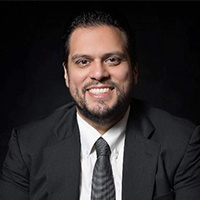Newllano Felony Lawyer, Louisiana
Sponsored Law Firm
-
 x
x

Click For More Info:
-
Babcock Trial Lawyers
10101 Siegen Ln #3-C Baton Rouge, LA 70810» view mapCriminal Defense We Want Your Injury Claim PAID NOW!
At Babcock Trial Lawyers, we work for our clients, maintaining our reputation of excellence as criminal defense & personal injury lawyers in Baton Rouge.
225-500-5000
Not enough matches for Newllano Felony lawyer.
Below are all Newllano Criminal lawyers.
Wesley Ryan Bailey
✓ VERIFIEDDivorce & Family Law, DUI-DWI, Real Estate, Wills & Probate, Adoption
Wesley Bailey is a practicing lawyer in the state of Louisiana specializing in Divorce & Family Law. More about Wes Bailey: Managing Attorney for so... (more)
S. Christie Smith IV
Accident & Injury, Personal Injury, Wrongful Death, Criminal
Status: In Good Standing Licensed: 28 Years
FREE CONSULTATION
CONTACTJack L Simms
Family Law, Divorce & Family Law, Criminal, Accident & Injury
Status: In Good Standing Licensed: 55 Years
Elvin C Fontenot
Wills & Probate, Divorce & Family Law, Criminal, Bankruptcy
Status: In Good Standing
Tiffany L Ratliff
Estate, Family Law, Divorce & Family Law, White Collar Crime, Criminal
Status: In Good Standing Licensed: 12 Years
Misty Dawn Smith
Landlord-Tenant, Employment, Divorce, Criminal
Status: In Good Standing Licensed: 13 Years
Scott Westerchil
Government, Divorce & Family Law, Criminal, Accident & Injury
Status: In Good Standing Licensed: 35 Years
 Stephen Babcock Baton Rouge, LA
Stephen Babcock Baton Rouge, LA Practice AreasExpertise
Practice AreasExpertise

